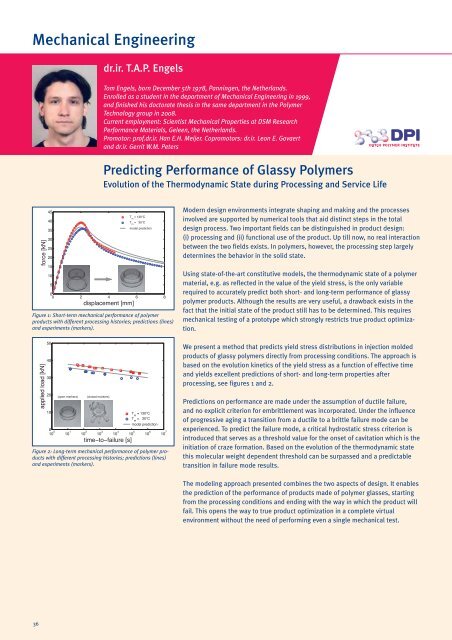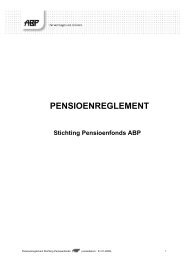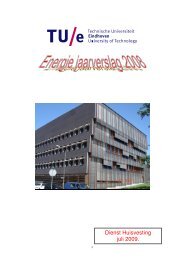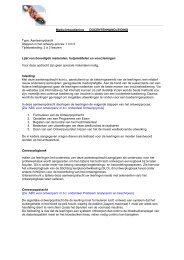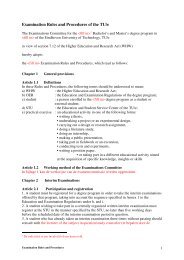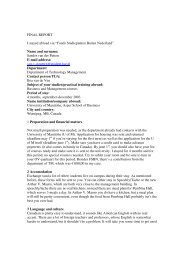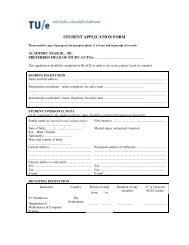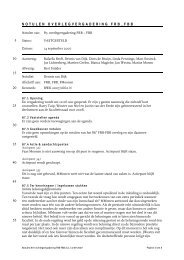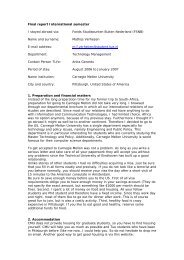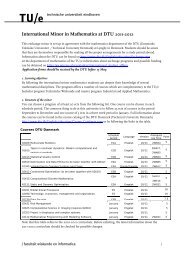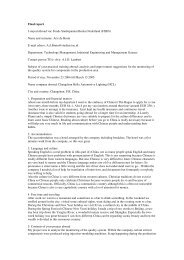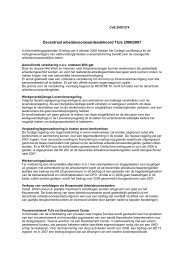TU/e Academic Awards 2009 - Technische Universiteit Eindhoven
TU/e Academic Awards 2009 - Technische Universiteit Eindhoven
TU/e Academic Awards 2009 - Technische Universiteit Eindhoven
You also want an ePaper? Increase the reach of your titles
YUMPU automatically turns print PDFs into web optimized ePapers that Google loves.
Mechanical Engineering<br />
dr.ir. T.A.P. Engels<br />
Tom Engels, born December 5th 1978, Panningen, the Netherlands.<br />
Enrolled as a student in the department of Mechanical Engineering in 1999,<br />
and finished his doctorate thesis in the same department in the Polymer<br />
Technology group in 2008.<br />
Current employment: Scientist Mechanical Properties at DSM Research<br />
Performance Materials, Geleen, the Netherlands.<br />
Promotor: prof.dr.ir. Han E.H. Meijer. Copromotors: dr.ir. Leon E. Govaert<br />
and dr.ir. Gerrit W.M. Peters<br />
Predicting Performance of Glassy Polymers<br />
Evolution of the Thermodynamic State during Processing and Service Life<br />
Figure 1: Short-term mechanical performance of polymer<br />
products with different processing histories; predictions (lines)<br />
and experiments (markers).<br />
Figure 2: Long-term mechanical performance of polymer products<br />
with different processing histories; predictions (lines)<br />
and experiments (markers).<br />
36<br />
Modern design environments integrate shaping and making and the processes<br />
involved are supported by numerical tools that aid distinct steps in the total<br />
design process. Two important fields can be distinguished in product design:<br />
(i) processing and (ii) functional use of the product. Up till now, no real interaction<br />
between the two fields exists. In polymers, however, the processing step largely<br />
determines the behavior in the solid state.<br />
Using state-of-the-art constitutive models, the thermodynamic state of a polymer<br />
material, e.g. as reflected in the value of the yield stress, is the only variable<br />
required to accurately predict both short- and long-term performance of glassy<br />
polymer products. Although the results are very useful, a drawback exists in the<br />
fact that the initial state of the product still has to be determined. This requires<br />
mechanical testing of a prototype which strongly restricts true product optimization.<br />
We present a method that predicts yield stress distributions in injection molded<br />
products of glassy polymers directly from processing conditions. The approach is<br />
based on the evolution kinetics of the yield stress as a function of effective time<br />
and yields excellent predictions of short- and long-term properties after<br />
processing, see figures 1 and 2.<br />
Predictions on performance are made under the assumption of ductile failure,<br />
and no explicit criterion for embrittlement was incorporated. Under the influence<br />
of progressive aging a transition from a ductile to a brittle failure mode can be<br />
experienced. To predict the failure mode, a critical hydrostatic stress criterion is<br />
introduced that serves as a threshold value for the onset of cavitation which is the<br />
initiation of craze formation. Based on the evolution of the thermodynamic state<br />
this molecular weight dependent threshold can be surpassed and a predictable<br />
transition in failure mode results.<br />
The modeling approach presented combines the two aspects of design. It enables<br />
the prediction of the performance of products made of polymer glasses, starting<br />
from the processing conditions and ending with the way in which the product will<br />
fail. This opens the way to true product optimization in a complete virtual<br />
environment without the need of performing even a single mechanical test.


